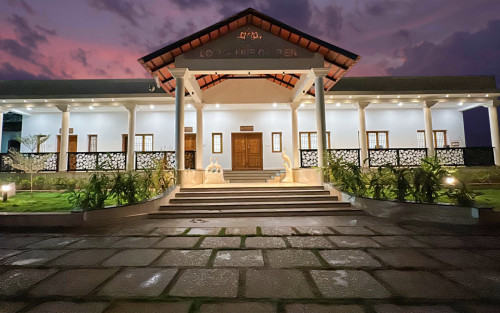
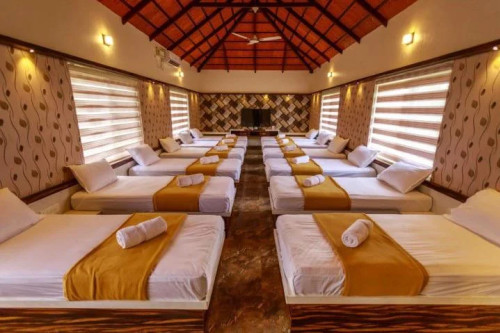
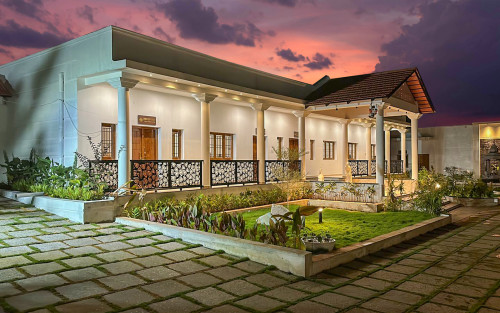
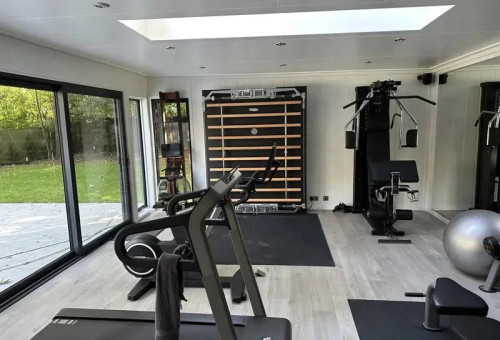
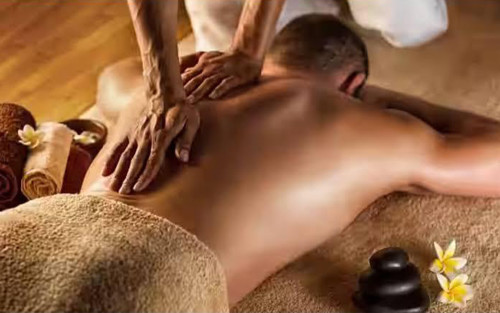




Lotus Life Center
Verified Center
This provider's information has been quality-checked by Recovery.com's Research Team for accuracy and completeness, including center verification through appropriate third-party organizations.
Treatment Focus
This center treats substance use disorders and mental health conditions. You'll receive individualized care catered to your unique situation and diagnosis, learn practical skills for recovery, and make new connections in a restorative environment.
Primary Level of Care
Offering intensive care with 24/7 monitoring, residential treatment is typically 30 days and can cover multiple levels of care. Length can range from 14 to 90 days typically.
Treatment Focus
This center treats substance use disorders and mental health conditions. You'll receive individualized care catered to your unique situation and diagnosis, learn practical skills for recovery, and make new connections in a restorative environment.
Primary Level of Care
Offering intensive care with 24/7 monitoring, residential treatment is typically 30 days and can cover multiple levels of care. Length can range from 14 to 90 days typically.
Private Pay
You pay directly for treatment out of pocket. This approach can offer enhanced privacy and flexibility, without involving insurance. Exact costs vary based on program and length of stay. Contact the center for specific details.
Lotus Life Center
Lotus Life Center
About Lotus Life Center
Situated at the foothills of the Anamalai Mountains in Tamil Nadu, India, Lotus Life Center is a premier holistic treatment facility dedicated to transformative healing. With a mission grounded in cutting-edge research, personalized care, and the power of creativity, the center offers an integrative approach to recovery. Clients struggling with substance use disorders and behavioral addictions benefit from expertly guided detoxification and residential programs, delivered by a compassionate clinical team.
Discover the Power of Holistic Wellness
Lotus Life Center takes a holistic, individualized approach to addiction recovery and mental health, aiming to uncover and heal the root causes for each client. Their advanced integration of the 12-step model is supported by weekly individual and group therapy sessions. Some of their evidence-based therapies include cognitive behavioral therapy (CBT), dialectical behavior therapy (DBT), motivational enhancement therapy, rational emotive behavior therapy, and holistic methods like acupuncture, aromatherapy, and hypnotherapy.
Blissful Environment where Heart & Soul Heal
At Lotus Life Center clients can enjoy shared accommodations, providing a sense of community while ensuring comfort. The nature-integrated campus is designed for healing and reflection. Clients can enjoy walking trails, peaceful meditation spaces, and expansive gardens. The center features yoga and fitness areas, nutritious meals from a fully-equipped kitchen, and therapy rooms equipped for both modern and traditional treatments. This thoughtfully curated environment supports holistic wellness and personal transformation.
A Passion for Recovery
Lotus Life Center recognizes that recovery does not end at discharge, and that relapse can be part of the journey. Their team places strong emphasis on relapse prevention through comprehensive aftercare services designed for lasting support. Clients have access to community housing, support groups, and ongoing therapy, as well as assistance with job placement, housing, and education. For those continuing with the 12-step path, regular meetings are available and encouraged.

Highlights from the Center
Highlights
These highlights are provided by and paid for by the center.
1-on-1 Counseling
Nature Lovers
Licensed for Both Addiction & Mental Health
Master's Level Therapists
Center Overview
Treatment Focus
This center treats substance use disorders and mental health conditions. You'll receive individualized care catered to your unique situation and diagnosis, learn practical skills for recovery, and make new connections in a restorative environment.

Lotus Life Center
Pricing and Program Length
Estimated Center Costs
The cost listed here (Rs80,000 - Rs100,000 / $950 - $1200 /month), is an estimate of program cost. Center price can vary based on program and length of stay. Contact the center for more information. Recovery.com strives for price transparency so you can make an informed decision.



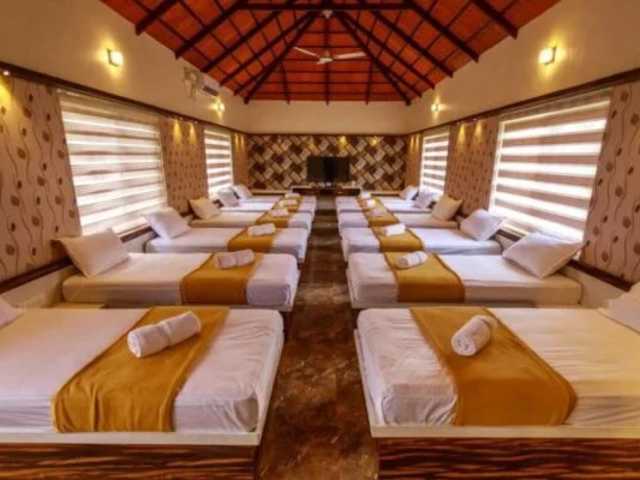
Other Lotus Centers
Recovery.com Verified Listing
Recovery.com verified that the name, location, contact information and license to operate for this treatment provider are valid and up-to-date.
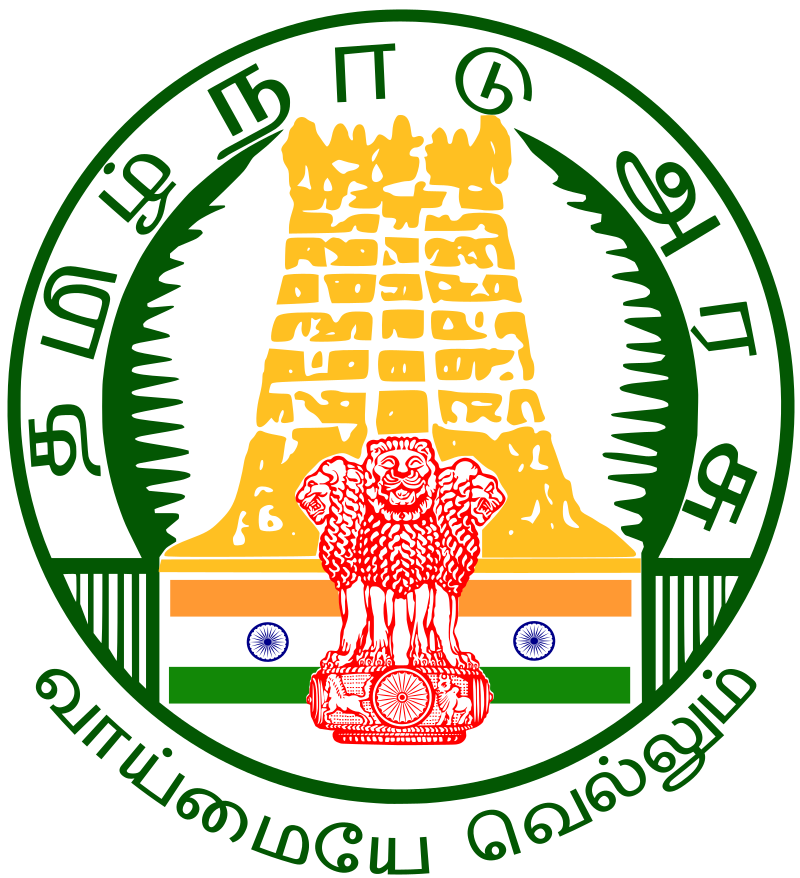
Directorate of Medical and Rural Health (DMRS)
Recovery.com is an independent, third-party mental health resource. Verification does not imply endorsement and does not guarantee the quality of treatment services.
Meet Your Care Team

Mrs. Om Priyadarshini B.Com
Founder-CEO Lotus Wellness
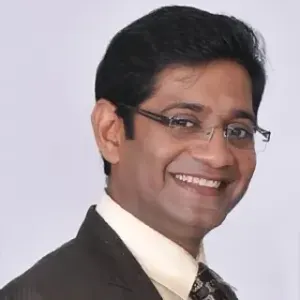
Dr. G Om Prakasham
Chairman - Lotus Wellness, Senior Consultant Cardiac Surgeon
M.B.B.S, MS ,MCh, FACS (Singapore)
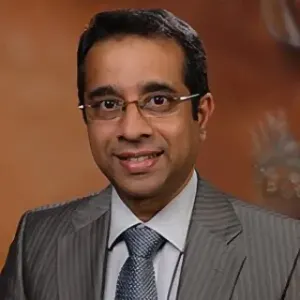
Dr. Paranthaman Sethupathi
Consultant Psychiatrist
MRCPsych, MBA
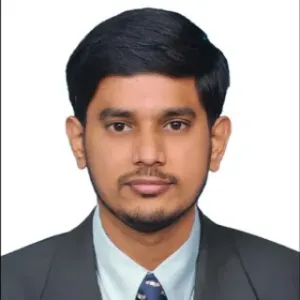
Dr. Vijaidarshan
Consultant Physician
M.B.B.S, MD

Dr Paari Vijayaraghavan
Senior Hepatobiliary and Liver Transplant Specialist
Your Care Options
Specializations
Schizophrenia
Schizophrenia is a serious mental health condition that causes hallucinations, delusions, and disordered thinking.
Alcohol
Using alcohol as a coping mechanism, or drinking excessively throughout the week, signals an alcohol use disorder.
Detox
Detox fully and safely removes toxic substances from the body, allowing the next steps in treatment to begin with a clean slate.
Depression
Symptoms of depression may include fatigue, a sense of numbness, and loss of interest in activities. This condition can range from mild to severe.
Gambling
Excessive, repetitive gambling causes financial and interpersonal problems. This addiction can interfere with work, friendships, and familial relationships.
Holistic
A non-medicinal, wellness-focused approach that aims to align the mind, body, and spirit for deep and lasting healing.
Relapse Prevention Counseling
Relapse prevention counselors teach patients to recognize the signs of relapse and reduce their risk.
Twelve Step
Incorporating spirituality, community, and responsibility, 12-Step philosophies prioritize the guidance of a Higher Power and a continuation of 12-Step practices.
Who We Treat
Adolescents
Teens receive the treatment they need for mental health disorders and addiction, with the added support of educational and vocational services.
Men and Women
Men and women attend treatment for addiction in a co-ed setting, going to therapy groups together to share experiences, struggles, and successes.
Treatment Services
Detox
Detox fully and safely removes toxic substances from the body, allowing the next steps in treatment to begin with a clean slate.
Outpatient
During outpatient rehab, patients attend a structured treatment program while continuing to live at home.
Residential
In a residential rehab program, patients live onsite, with access to daily treatment and 24-hour care. An average stay is 30-90 days.
Approaches
Bio-Medical
A philosophy focusing on the biomechanics behind mental health disorders, using prescribed medications as a supplement to behavioral therapy.
Evidence-Based
A combination of scientifically rooted therapies and treatments make up evidence-based care, defined by their measured and proven results.
Holistic
A non-medicinal, wellness-focused approach that aims to align the mind, body, and spirit for deep and lasting healing.
Personalized Treatment
The specific needs, histories, and conditions of individual patients receive personalized, highly relevant care throughout their recovery journey.
Therapies
1-on-1 Counseling
Patient and therapist meet 1-on-1 to work through difficult emotions and behavioral challenges in a personal, private setting.
Meditation & Mindfulness
A practiced state of mind that brings patients to the present. It allows them to become fully aware of themselves, their feelings, and the present moment.
Play Therapy
This approach is commonly used with children. It incorporates elements of play and self-expression, like boardgames, finger painting, dolls, and blocks.
Trauma-Specific Therapy
This form of talk therapy addresses any childhood trauma at the root of a patient's current diagnosis.
Rational Emotive Behavior Therapy
A type of cognitive therapy that identifies negative self-defeating thoughts and behaviors, rewriting beliefs to be positive, empowering, and present.
Adventure Therapy
This experiential approach uses the physical and emotional challenges of outdoor activities as tools for personal growth.
Attachment-Based Family Therapy
ABFT is a trauma-focused therapy that teaches you to form healthy relationships by rebuilding trust and healing attachment issues formed in childhood.
Conditions We Treat
Pornography Addiction
A person with a porn addiction is emotionally dependent on pornography to the point that it interferes with their daily life and relationships.
Schizophrenia
Schizophrenia is a serious mental health condition that causes hallucinations, delusions, and disordered thinking.
Personality Disorders
Personality disorders destabilize the way a person thinks, feels, and behaves. If untreated, they can undermine relationships and lead to severe distress.
Anxiety
Anxiety is a common mental health condition that can include excessive worry, panic attacks, physical tension, and increased blood pressure.
Bipolar
This mental health condition is characterized by extreme mood swings between depression, mania, and remission.
Depression
Symptoms of depression may include fatigue, a sense of numbness, and loss of interest in activities. This condition can range from mild to severe.
Gambling
Excessive, repetitive gambling causes financial and interpersonal problems. This addiction can interfere with work, friendships, and familial relationships.
Gaming
Compulsive gaming is most often a problem for children and teens. The disorder can affect physical health, sleep, and the ability to focus at school.
Internet Addiction
Internet addiction is common among children teens. This compulsive disorder can damage relationships, school performance, sleep habits, and physical health.
Substances We Treat
Alcohol
Using alcohol as a coping mechanism, or drinking excessively throughout the week, signals an alcohol use disorder.
Co-Occurring Disorders
A person with multiple mental health diagnoses, such as addiction and depression, has co-occurring disorders also called dual diagnosis.
Cocaine
Cocaine is a stimulant with euphoric effects. Agitation, muscle ticks, psychosis, and heart issues are common symptoms of cocaine abuse.
Drug Addiction
Drug addiction is the excessive and repetitive use of substances, despite harmful consequences to a person's life, health, and relationships.
Heroin
Heroin is a highly addictive and illegal opioid. It can cause insomnia, collapsed veins, heart issues, and additional mental health issues.
Psychedelics
Hallucinogenic drugs—like LSD—cause euphoria and increased sensory experiences. When abused, they can lead to depression and psychosis.
Opioids
Opioids produce pain-relief and euphoria, which can lead to addiction. This class of drugs includes prescribed medication and the illegal drug heroin.
Smoking Cessation
Quitting smoking—i.e., ceasing to smoke—means giving up smoking nicotine and tobacco products. This process has very important health benefits.
Synthetic Drugs
Synthetic drugs are made in a lab, unlike plant-based drugs like mushrooms. Most synthetic drugs are either stimulants or synthetic cannabinoids.
Languages
Aftercare
Care Designed for Your Needs
Personal Amenities
Amenities
Activities
Yoga
Yoga is both a physical and spiritual practice. It includes a flow of movement, breathing techniques, and meditation.
Off-Site Activities
Off-Site Amenities

Learn More About the Center
What a Typical Day Looks Like
Discover how structure and support create a calm, focused path to recovery.
What Sets Lotus Life Center Apart
Find out what makes this center’s approach different, compassionate, and truly effective.
Holistic Services Offered at Lotus Life Center
Explore a wide range of services designed to nurture your body, mind, and spirit.
Why Pollachi Is Ideal for Healing
Discover how this town’s peaceful setting creates the perfect environment for meaningful recovery.
What people are saying
Treatment
5.0
Accommodations
5.0
Food & Nutrition
4.9
Value
5.0
Pros
- Beautiful Location (19)
- Supportive Aftercare (18)
- Treated My Loved One With Respect (17)
- Trustworthy (17)
Saravanan
Treatment in 2025 • (90 days) • Reviewed 10/14/25
Former Client
•Engineer
•Chennai
Lotus Life Center
Ram
Treatment in 2025 • (90 days) • Reviewed 06/23/25
Loved One of a Former Client
•Kerala
Kavita
Treatment in 2025 • (90 days) • Reviewed 05/23/25
Loved One of a Former Client
•Delhi
Sangeetha
Treatment in 2025 • (90 days) • Reviewed 10/27/25
Loved One of a Former Client
•Kochi
Lotus Life Center
Jagadesan
Treatment in 2025 • (45 days) • Reviewed 02/09/26
Loved One of a Former Client
•Madurai





